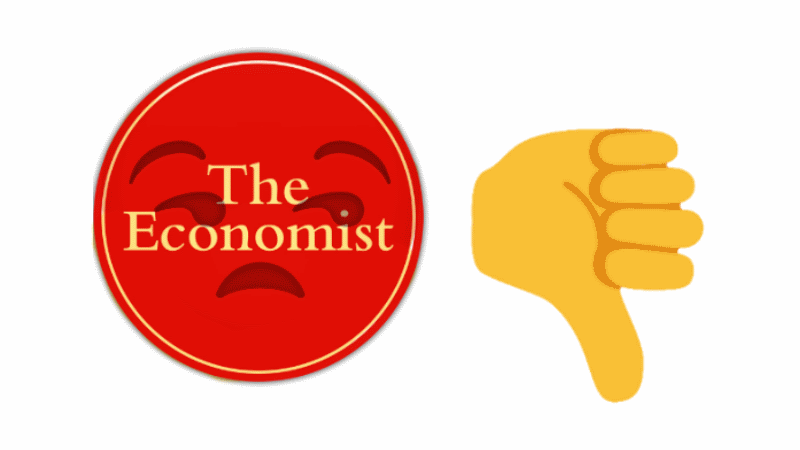Neoclassical rag of record the Economist called for a system of “universal basic healthcare” in its cover story this week. While anyone vaguely familiar with the magazine’s free market supremacist ideology might find this paradoxical, we don’t have to worry about reality fracturing into a million glittering shards just yet.
At the 2017 DSA Convention, the priorities resolution in support of Medicare for All didn’t pass smoothly. In fact, it was lambasted for not going far enough. If you read the version as adopted, you’ll find that DSA endorsed universal healthcare only as a stepping stone to socialized medicine – that is, the decommodification of healthcare altogether.
What the Economist is calling for might be closer to the bait-and-switch proposals that the slipperiest snakes of the political consulting world have recently been selling to the Democrats. Keywords like “affordable” let us know that these ideas (like the trying-much-too-hard “Medicare Extra For All”) have no intention of taking the market out of the healthcare system. It’s no secret even to capitalists that the reprehensible healthcare system of the United States represents an existential threat to their status quo, especially after the grassroots resistance to the gutting of the Affordable Care Act last year. If the healthcare system radicalizes the people, they might start looking for alternatives to capitalism – and in fact, they already have.
Universal
So what does “universal basic health care” mean? We might look to the similarly-named “universal basic income”, or UBI, as an example. UBI entails granting every person (or household, or citizen, or resident, depending on the proposal) some level of cash support. Various left proposals exist for using UBI as a way to ameliorate or eliminate extreme poverty; more centrist and even a few right-wing versions also envision it as a replacement for other social safety net programs. Recently it’s gained traction among the Silicon Valley elite, this time for another reason. If automation is to drive millions (or billions) out of work, how will they purchase things? Silicon Valley UBI intends to turn a class of workers into a class of consumers, exchanging their labor power (with which they can shut down production by withholding) for buying power (which can’t affect the machinery of production except indirectly).
A quote from the Economist’s article is telling: “Land cannot be developed if it is full of disease-carrying parasites.” Free from the automation-obsessed futurism of Silicon Valley, the magazine still envisions a world of workers – workers who must be kept healthy enough to work. Couched in language about individual initiative and entrepreneurship, their support for universal care is simply a means of maintaining economic growth.
Basic
Why include this word? The minimal standard of care to maintain a healthy workforce leaves a significant sector of the healthcare system to the free market. While DSA calls for a system of Medicare For All that is comprehensive, the Economist’s proposal seeks only to blunt the sharpest edges of health injustice.
In situations like these, we have something to learn from capitalism – specifically, from advertising: Medicare For All: Accept no substitutes.
Unless expressly stated, Dispatches do not necessarily reflect the views of Seattle DSA as an organization or its leadership.
